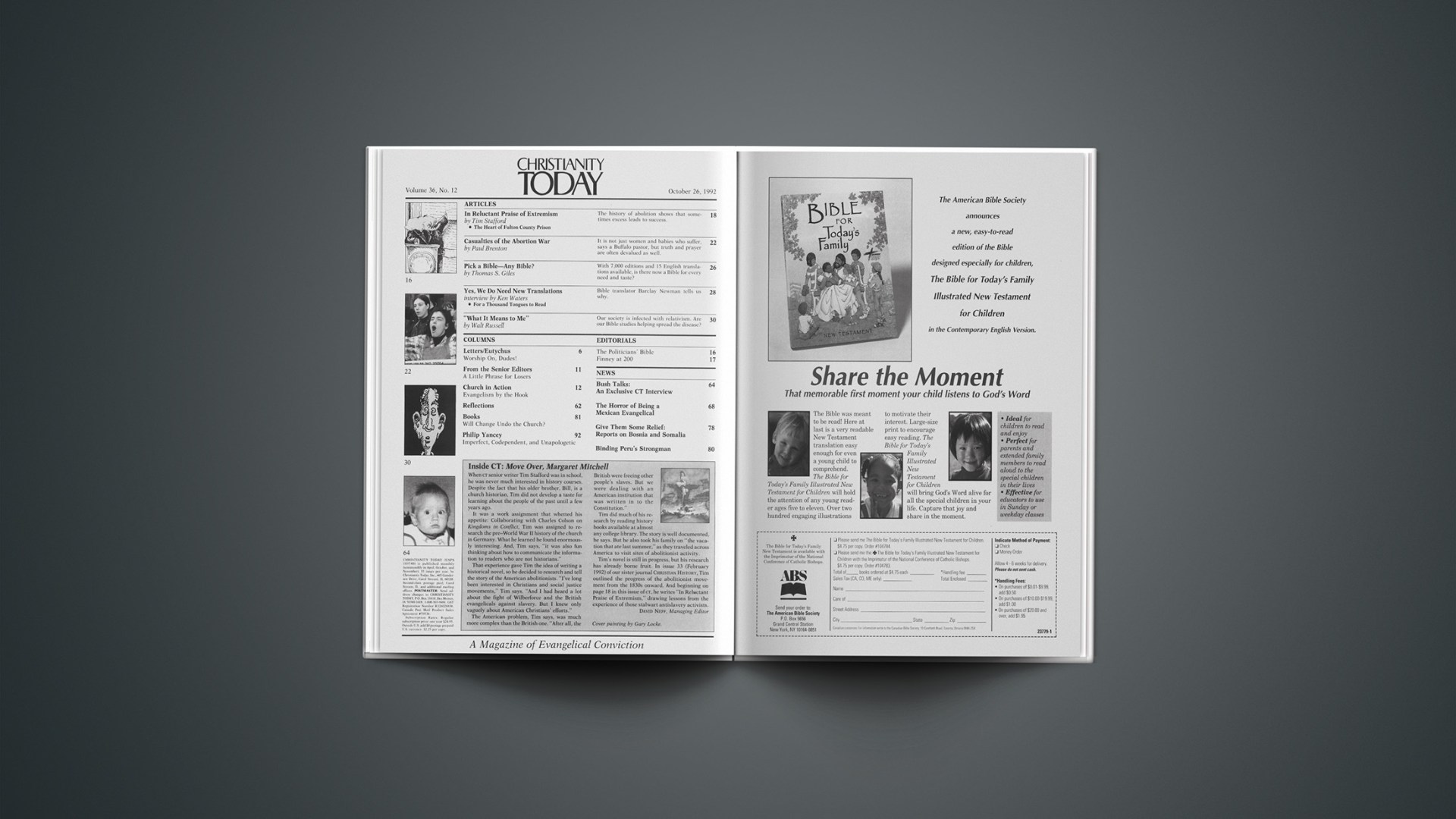When CT senior writer Tim Stafford was in school, he was never much interested in history courses. Despite the fact that his older brother, Bill, is a church historian, Tim did not develop a taste for learning about the people of the past until a few years ago.
It was a work assignment that whetted his appetite: Collaborating with Charles Colson on Kingdoms in Conflict, Tim was assigned to research the pre-World War II history of the church in Germany. What he learned he found enormously interesting. And, Tim says, “it was also fun thinking about how to communicate the information to readers who are not historians.”
That experience gave Tim the idea of writing a historical novel, so he decided to research and tell the story of the American abolitionists. “I’ve long been interested in Christians and social justice movements,” Tim says. “And I had heard a lot about the fight of Wilberforce and the British evangelicals against slavery. But I knew only vaguely about American Christians’ efforts.”
The American problem, Tim says, was much more complex than the British one. “After all, the British were freeing other people’s slaves. But we were dealing with an American institution that was written in to the Constitution.”
Tim did much of his research by reading history books available at almost any college library. The story is well documented, he says. But he also took his family on “the vacation that ate last summer,” as they traveled across America to visit sites of abolitionist activity.
Tim’s novel is still in progress, but his research has already borne fruit. In issue 33 (February 1992) of our sister journal CHRISTIAN HISTORY, Tim outlined the progress of the abolitionist movement from the 1830s onward. And beginning on page 18 in this issue of CT, he writes “In Reluctant Praise of Extremism,” drawing lessons from the experience of those stalwart antislavery activists.
DAVID NEFF, Managing Editor









